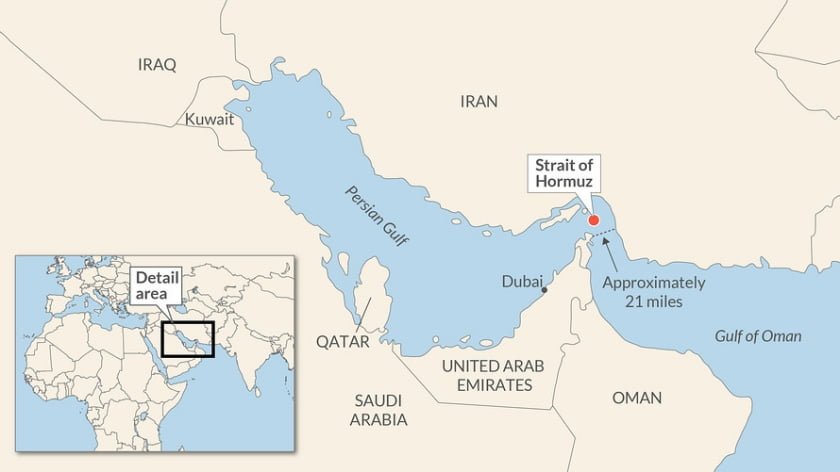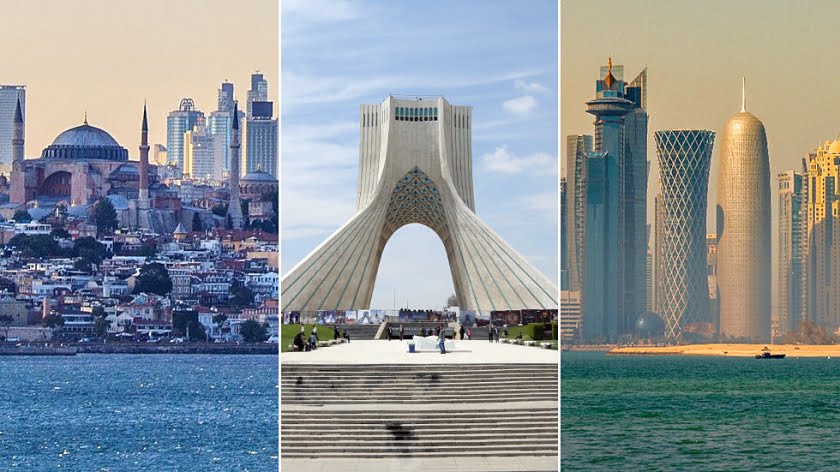Johnson Pushes the EU to the Brink over Brexit
When the end-game of a political issue becomes obvious I tend to move on to other pressing issues. For most of 2018 and 2019 Brexit was a top-drawer issue because its end-game was uncertain.
With Boris Johnson’s resounding victory in December Brexit’s end-game became obvious if you assumed Johnson was a man of his word.
That was a tough pill to swallow, but given the political stakes for Johnson not a bad bet to put money on. And I argued after swallowing that pill that Johnson was in a position to drive the Remainers in his government and Parliament to extinction during Free Trade negotiations.
With the latest twist in the Brexit saga it looks like he and his negotiating team are ready to drive the final stake through the heart of them and the European Union with the Internal Market bill.
The Withdrawal Act’s validity and applicability to the future relationship between the EU and the U.K. is predicated on two things.
- Both sides negotiating a Free Trade Agreement in good faith.
- A free trade agreement is actually signed by the two parties.
If either of these things do not come to pass Section 38 of the Withdrawal Act upgrades the power of the U.K. government since it asserts the sovereignty of the U.K. parliament as a law-making body for the whole of the United Kingdom.
This includes Northern Ireland.
Johnson’s seeming sell-out of Northern Ireland with his agreeing to the Withdrawal Act was always predicated on there being a free trade deal struck between the EU and the U.K.
The Northern Ireland Protocol would only come into play if there wasn’t a deal struck between them. And as we count down to the deadline on a deal, Brussels was hoping to use this as leverage to force Johnson to bend the knee.
That probability is rapidly approaching zero now that Johnson et. al. have tabled this bill which has infuriated Remainers in parliament as well as the EU itself.
According to an article in The Sun, the EU’s Chief Brexit Negotiator Michel Barnier threatened U.K. food exports to Northern Ireland if Downing Street didn’t bend the knee.
But The Sun has learnt that London’s attempt to “clarify” parts of the 2019 exit treaty came after what they saw as veiled threats from Michel Barnier’s team that the EU could exploit parts of the Withdrawal Agreement if the UK did not bow to their trade deal demands.
Under the terms of the deal export of “products of animal origin” such as meat, fish, shellfish, eggs and dairy from the UK mainland over to Northern Ireland will become subject to EU oversight.
The EU has a “Third Country” list of approved third parties that can legally import agricultural goods into areas subject to their rules.
The UK being put on that approved list was assumed to be a given and not subject to negotiation, but Brits were left seething after Michel Barnier’s team hinted the UK may not be given that legal status if talks collapse.
Johnson’s team then unveiled the Internal Market bill, which had its first reading today, reminding Barnier and the rest of the EU just who has the leverage these trade deal talks because the Withdrawal Act clearly stipulates U.K. law is superior to EU law even when it comes to U.K. territory under the auspice of EU rules.
This move may be the thing that finally forces Brussels to cave completely even while they fulminate about the Brits “violating international law” by amending a standing treaty.
The usual suspects all across the U.K. from the Scottish Nationals to eurocrats in the House of Lords like Andrew Adonis to even former Prime Minister (and traitor) Theresa May were livid.
And when you have all of these people mad at you, like Johnson has accomplished here, in my mind you are doing something terribly right.
But the big question is whether or not this bill, if it became law, would even be a breach of international law.
Since, again, Section 38 of the Withdrawal Act asserts the sovereignty of the U.K. parliament over the whole of the U.K. and the EU threatening to revoke a food export licence to Northern Ireland from the rest of the U.K. is an application of EU law over a part of the U.K. itself.
And that’s in clear violation of Section 38 of the Withdrawal Act which, if I remember correctly, the EU signed.
Moreover, as I said above, both sides have to be seen as negotiating in good faith. The U.K. is only asking for a free trade deal similar in scope to that of the one the EU has with Canada. The EU, however, is threatening to assert sovereignty over Northern Ireland despite having agreed to parliament’s sovereignty over the whole of the U.K. in the Withdrawal Act.
Someone here is in violation of international law, by my reckoning, and it isn’t Johnson and company. By negotiating in bad faith the whole of the Withdrawal Act then can be called into question as either side can unilaterally walk away from it. The Internal Markets bill clarifies, if it becomes U.K. law, how the Northern Ireland Protocol can be implemented in the case of a No-Deal Brexit.
The tabling of this bill caused Remainers all across the British political class and the civil service to walk off the job in a huff. All of this is, in my opinio, downstream of Johnson firing Sir Mark Sedwill back in late June.
Sedwill who was Chief Cabinet Secretary, Head of the British Civil Service and National Security Adviser under Theresa May, was un-ironically a more powerful man in British politics than the Prime Minister himself.
Removing Sedwill, who attempted to stage a coup against Johnson when Johnson had COVID-19, and sign a Brexit extension without Johnson’s consent, was the single biggest thing done to ensure the U.K.’s hardening negotiating stance with the EU.
Sedwill wasn’t just a Remainer, he was the person most responsible for the U.K.’s lack of preparation for Brexit and allowing the civil service to sabotage the negotiating process.
The Bottom line is Johnson holds aces in the whole and just flopped the nuts. Barnier and the EU are done. If Johnson wasn’t feeling confident he wouldn’t have upped the timetable to a free trade deal to October 15th as the last possible day rather than leaving the option open longer.
Remember, Barnier and German Chancellor Angela Merkel were trying to delay things until after the U.S. election in the hopes that a President Biden would leave Johnson out to hang on a free trade agreement with the U.S., reverse Trump’s opting out of the TTIP and the Paris Accords.
By playing hardball now that Trump looks likely to win the election (regardless of the chaos that will likely engender) Johnson is telling the EU their game is over and to prepare for their worst nightmare…
… a free and independent U.K. including a bottled up Scotland and Northern Ireland far beyond their grasp.







